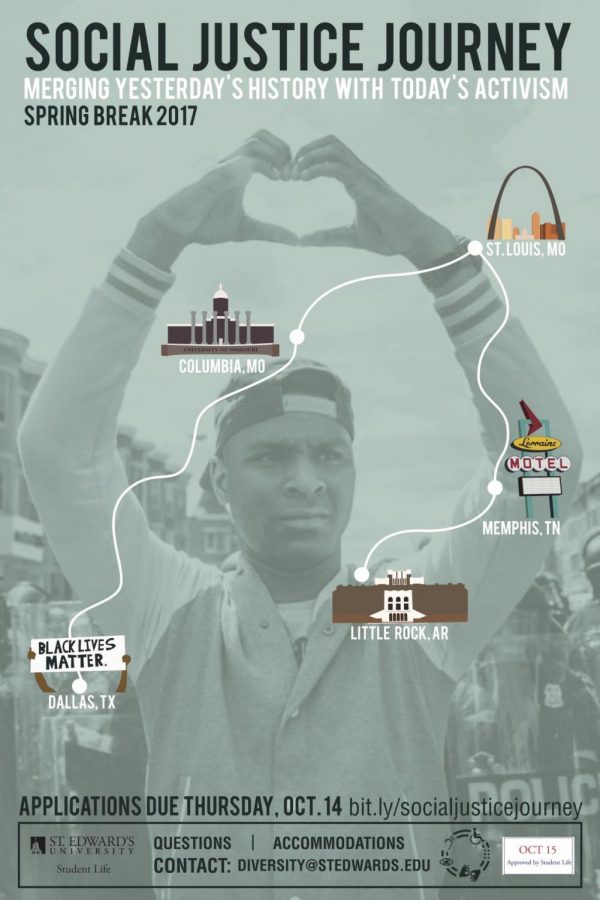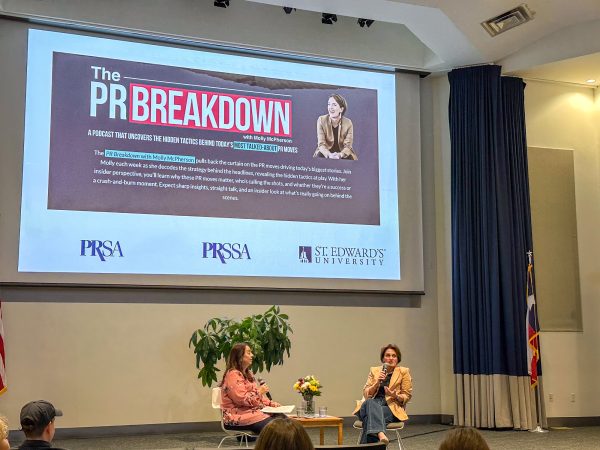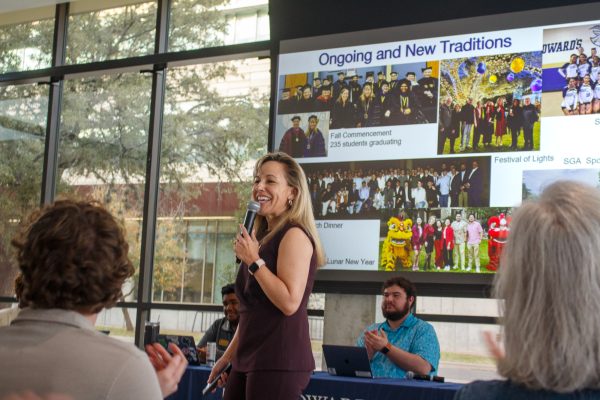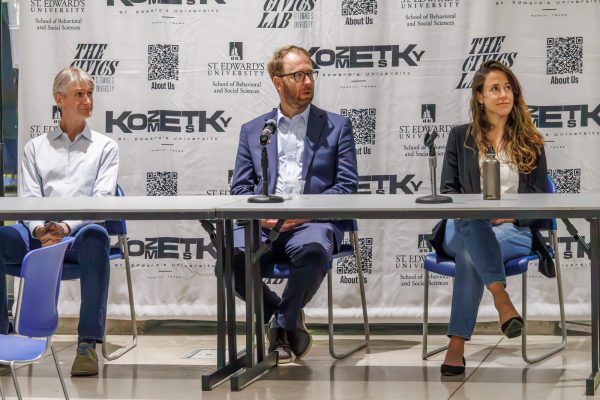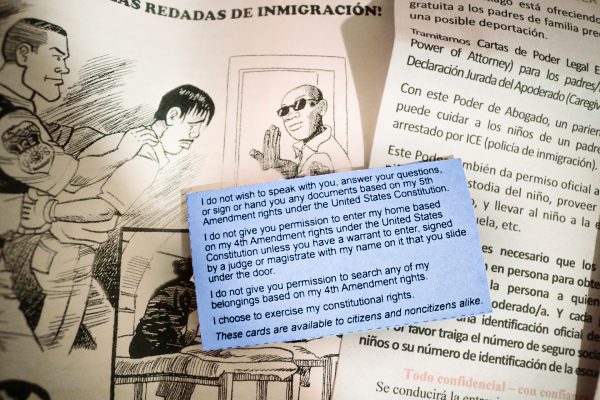On the road: Social justice trip to teach appreciation, awareness
A week-long trip to different cities across the American South is meant to have students reflect on the Civil Rights Movement in the 1960s with current social justice issues.
Ten students will be heading on a journey across the American South, connecting history with today’s social justice issues.
The Office of Student Life created a week-long “Social Justice Journey” to take place during spring break. Students will take two vans and visit several locations of importance during the 1960s Civil Rights Movement, said Joi Torres, associate director of Student Life and director of diversity and inclusion.
“It’s a part of our mission to talk about and consider issues of social justice, but sometimes that can feel very distant,” Torres said. “How can we humanize important issues of social justice, and how to make a journey that isn’t tourism, but was really putting people in the shoes of activists and changemakers?”
Students will be going to different locations across the South. They will be starting in Austin, then traveling to Little Rock, Arkansas, Memphis, Tennessee, St. Louis, Columbia, Missouri and Dallas.
The idea of this, Torres said, was years in the making. She believes the conversation about politics and a community’s response to politics were not as intense just four years ago.
“All of the conversations around police brutality, activism and around community organizing have happened in the past two years,” Torres said. “Combined with the political energy since this election.”
In Little Rock, students will visit Central High School, where nine African American students were denied entry by the state’s national guard, by orders of the governor, in 1957. President Dwight Eisenhower federalized the guard and had the military escort the students into the high school.
Memphis was chosen as a location, in part, because it is the location of the assassination of Martin Luther King Jr. Students will be in St. Louis and in the area of Ferguson, Missouri. In Ferguson, residents protested and rioted in August 2014, after an officer-involved shooting.
The University of Missouri is another stop, as a lot of campus activism has occurred there in recent years, Torres said. The final leg of the journey will be to Dallas. Students will be meeting with Dallas police officers and community activists.
“In a healthy community, these two groups of people work together to ensure the community is safe and engaged,” Torres said.
The Dallas Police Department was deliberately chosen for this trip, Torres said. In July 2016, five officers were shot and killed during a peaceful protest. The murders were in retaliation to past officer-involved shootings with African Americans. Students will visit the memorial for the officers.
“Every police department has issues with the community, but [Dallas] had tried really hard in its training, and in its recruitment and in its positions,” Torres said.
President of the Black Student Alliance Genevia Kanu is looking forward to the opportunity to do something purposeful with her spring break.
“I have prepared to process some heavy emotions because of the content of this trip,” she said. “I expect that I will learn more about black history, but also how current social movements have impacted communities.”
This is the first “Social Justice Journey.” Torres hopes that this will be done in the future on a larger scale, but adds lot will be learned from this first year.


